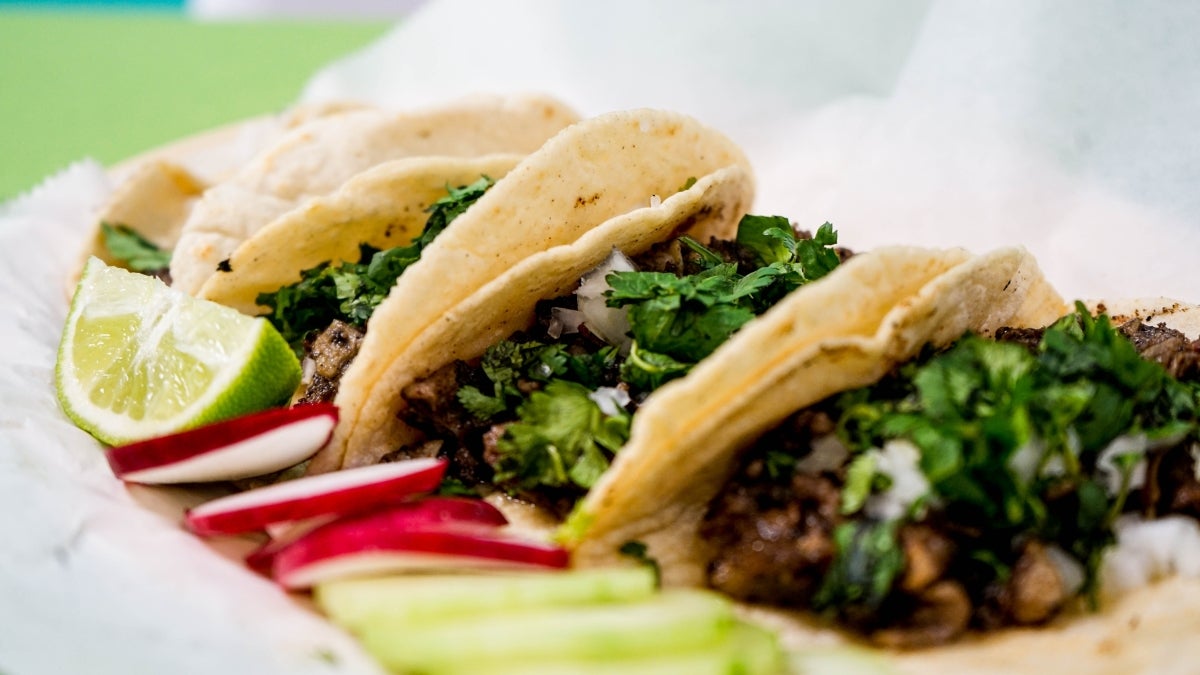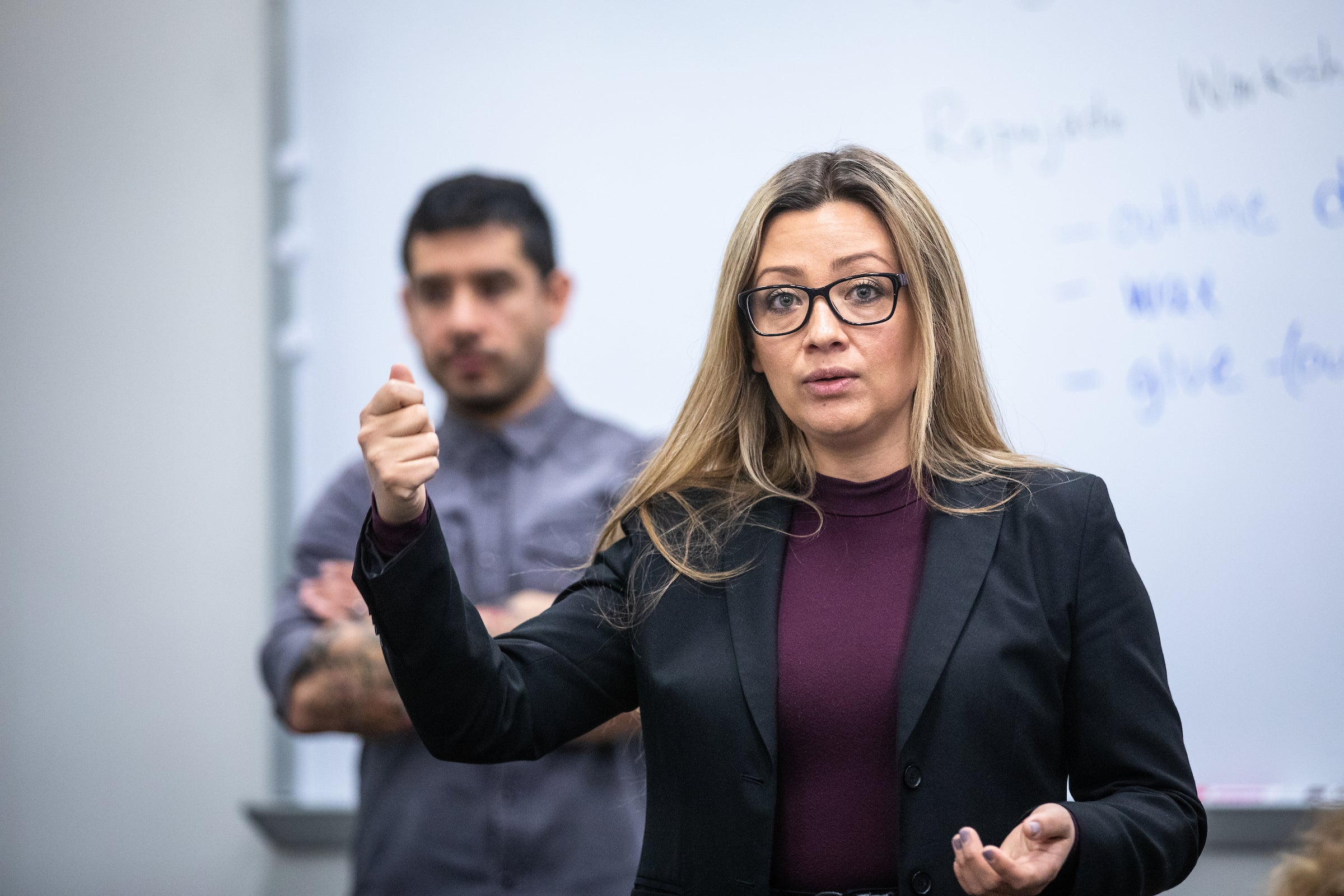Tamales, churros, raspados, elotes. On the streets of Los Angeles, the hands that serve these dishes from the shade of a vending cart may belong to a child with a special family role.
Emir Estrada
That is the focus of Emir Estrada’s new book, “Kids at Work: Latinx Families Selling Food on the Streets of Los Angeles.” Estrada, an assistant professor in the School of Human Evolution and Social Change, explores the experiences of children in the U.S. who street vend alongside their undocumented parents.
Estrada hopes the book will help people look beyond their own ideas of what family and childhood should be like. Her portraits of working immigrant families challenge the notion that children are only meant to be nurtured and don’t contribute to family finances or well-being.
Her book is based on three years of anthropological fieldwork, which she spent shadowing street-vending families and interviewing children and their parents. The research required her to integrate herself into their daily lives. She observed by blending in with customers, helped out by running errands or covering the food stands during breaks, attended social events with the families and spent time in their homes.
But before any of this, she had to tackle the greatest challenge of her study — gaining their trust.
“Families did not trust me and were afraid that I could be a police officer, a health inspector or a social worker looking for instances of child labor,” Estrada said.
Street vending was illegal in California at the time (the law has since changed), which made families even more hesitant to speak with her.
With time, she earned their trust by sharing her own story of working with her parents in Mexico and the U.S. when she was young. And, of course, by buying and enjoying their food.
As Estrada came to know the families better, she learned that the children — ages 10 to 18 in her study — help in many different ways.
While some operate the food stands and others prepare the food at home beforehand, all are financial co-contributors with their parents, and their earnings help pay for rent, food, clothes or tuition. They also use their English language skills and social media savvy to advertise their food and interact with customers. The girls that Estrada talked to do even more, such as assisting with cooking, cleaning and child care at home.
Although this family role sometimes creates tension with parents — most often, kids feel that they work too much or don’t have enough time to spend with friends — it also benefits them.
Children not only learn to value money, manage their time and develop a work ethic, they also form stronger bonds with their parents.
“The children who worked with their parents developed an empathetic stance toward their parents — a resiliency that results from experiencing their parents’ position of oppression,” Estrada said.
Bringing to light this special bond, and the struggles and successes of these children, is at the heart of her book. The crucial role that kids play as their families try to prosper in a new country is one few scholars have explored, and that few of their LA customers appreciate, Estrada said.
When she asked kids what they would want to tell readers of the book, most said that they wanted to be recognized and respected for their work.
“Seventeen-year-old Clara summarized the overwhelming responses I heard most often: ‘I would like people to come here and see that it is not easy. We see my mom suffer. A lot of people make fun of my mom or me, but if they only knew,’” Estrada said. “I hope that this book has accomplished the children’s desire to bring awareness to their work and family contributions.”
Use promo code SPRING19 to receive a discount when you order the book.
Top photo courtesy of Unsplash.com
More Arts, humanities and education

ASU student finds connection to his family's history in dance archives
First-year graduate student Garrett Keeto was visiting the Cross-Cultural Dance Resources Collections at Arizona State University as part of a course project when he discovered something unexpected:…

ASU alumna makes her way back to the ASU Gammage stage for '¡azúcar!'
As the Los Angeles-based CONTRA-TIEMPO dance group prepares for its upcoming production “¡azúcar!” at ASU Gammage, for one member of the dance group it is also a nostalgic return to her home.Born in…

ASU FIDM professor wins international award for fantastical, sustainable creation
The horror of an ailing Earth inspired an Arizona State University fashion professor to create a fantastical garment out of sustainable, re-used and found materials that won a prestigious…

